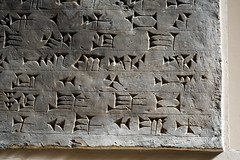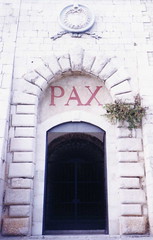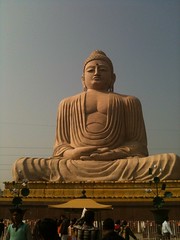First set of words in the AP World History book by the Princeton Review.
| 6785967738 | Agriculture | The deliberate effort to modify a portion of Earth's surface through the cultivation of crops and the raising of livestock for sustenance or economic gain. | 0 | |
| 6785967739 | Agrarian | Pertaining to land or its cultivation | 1 | |
| 6785967740 | Bands/Clans | Extended family groups that generally lived together | 2 | |
| 6785967741 | Barbarian | Without civilizing influences | 3 | |
| 6785967742 | Bureaucracy | System of managing government through departments run by appointed officials (not elected) | 4 | |
| 6785967743 | Civilization | A society in an advanced state of social development (e.g., with complex legal and political and religious organizations) | 5 | |
| 6785967744 | City-States | Different sections of land owned by the same country but ruled by different rulers | 6 | |
| 6785967745 | Classical | Characteristics of a form or system felt to be of first significance before modern times | 7 | |
| 6785967746 | Domestication | Process of changing plants or animals to make them more useful to humans | 8 | |
| 6785967747 | Economy | System by which goods and services are produced and distributed to meet people's needs | 9 | |
| 6785967748 | Egalitarian | A person who believes in the equality of all people | 10 | |
| 6785967749 | Emperor | Supreme ruler of an empire | 11 | |
| 6785967750 | Empire | Many territories, countries, or peoples controlled by one government | 12 | |
| 6785967751 | Feudalism | A political system and a social system where by a powerful lord would offer protection in return for service | 13 | |
| 6785967753 | Hierarchy | A series of ordered groupings of people or things within a system | 14 | |
| 6785967755 | Hunter-Gatherer | Which society is one whose primary subsistence method involves the direct procurement of edible plants and animals from the wild, foraging and hunting without significant recourse to the domestication of either plants nor animals | 15 | |
| 6785967756 | Irrigation | Supplying dry land with water by means of ditches, sprinklers, etc. | 16 | |
| 6785967757 | Monarchy | A government in which power is in the hands of a single person who usually inherits their power | 17 | |
| 6785967758 | Monotheism | Belief in a single God | 18 | |
| 6785967759 | Neolithic | The New Stone Age from circa 8500 to 4500 BCE: The period of the Stone Age associated with the ancient Agricultural Revolution(s) | 19 | |
| 6785967760 | Nomadic | A group of people tending to travel and change settlements frequently | 20 | |
| 6785967761 | Pastoral | Relating to shepherds/herdsmen/devoted to raising sheep or cattle | 21 | |
| 6785967762 | Paleolithic | The Old Stone Age from circa 750,00 to 500,000 years BCE to 8,500 years BCE: The period of the Stone Age associated with the evolution of humans and the development of minor tools | 22 | |
| 6785967763 | Philosophy | The rational investigation of questions about existence, knowledge, and ethics | 23 | |
| 6785967764 | Polytheism | Belief in multiple Gods | 24 | |
| 6785967765 | River Valley | The fertile land surrounding a river- the first civilizations arose near them | 25 | |
| 6785967766 | Sedentary | Remaining in one place | 26 | |
| 6785967767 | Settlement | The act of colonizing or a small group of people in a sedentary position | 27 | |
| 6785967768 | Subsistence | The necessities of life, the resources of survival | 28 | |
| 6785967770 | Sustenance | The act of sustaining life by food or providing a means of subsistence | 29 | |
| 6785967771 | Theocracy | Government run by religious leaders | 30 | |
| 6785967772 | Traditional | Customary practices | 31 | |
| 6785967773 | Urbanization | The social process whereby cities grow and societies become more urban | 32 | |
| 6785967774 | Vassals | Lesser lords who pledged their service and loyalty to a greater lord -- in a military capacity | 33 | |
| 6785967775 | Alexander the Great | King of Macedon, conqueror of Greece, Egypt, and Persia (356-323 BC) |  | 34 |
| 6785967776 | Analects of Confucius | "something that is repeated" - A collection of Confucius' famous sayings | 35 | |
| 6785967777 | Bronze Age | A period between the Stone and Iron ages, characterized by the manufacture and use of bronze tools and weapons |  | 36 |
| 6785967778 | Calendar | A system of timekeeping that defines the beginning and length and divisions of the year | 37 | |
| 6785967779 | Code of Hammurabi | The set of laws drawn up by Babylonian King Hammurabi dating to the 18th century BC |  | 38 |
| 6785967780 | Cuneiform | One of the first written languages known: A system of writing in which wedge-shaped symbols represented words or syllables. It originated in Mesopotamia and was used initially for Sumerian and Akkadian but later was adapted to represent other languages of western Asia. |  | 39 |
| 6785967781 | Democracy | A political system in which the supreme power lies in a body of citizens who can elect people to represent them | 40 | |
| 6785967782 | Eight Fold Path | Eight steps to end suffering and attain enlightenment according to Buddhist tradition. | 41 | |
| 6785967783 | Four Noble Truths | As taught by the Buddha, the four basic beliefs that form the foundation of Buddhism | 42 | |
| 6785967784 | Gothic Migrations | Also called the Barbarian Invasions, was a period of human migration that occurred roughly between the years 300-700 A.D in Europe. These movements were catalyzed by profound changes within both the Roman Empire and the "barbarian frontier". Migrating peoples during this period included the Goths, Vandals, Bulgars, Alans, Suebi, Frisians, and Franks, among other Germanic and Slavic tribes. | 43 | |
| 6785967785 | Great Wall (of China) | A fortification 1,500 miles long built across northern China in the 3rd century BC | 44 | |
| 6785967786 | Han Dynasty | An imperial dynasty that ruled China (most of the time from 206 BC-220 AD) and expanded its boundaries and developed its bureaucracy |  | 45 |
| 6785967787 | Hellenism (Hellenization) | The ideals and principles that spread from Greece through much of the ancient world. Much of its influence such as philosophy, athletics, and architecture penetrated the Middle East. |  | 46 |
| 6785967788 | The Huns | Fierce warriors from Central Asia- First invaded southeastern Europe and then launched raids on nearby kingdoms | 47 | |
| 6785967789 | Indian Ocean Trade | Connected to Europe, Africa, and China; worlds richest maritime trading network and an area of rapid Muslim expansion. |  | 48 |
| 6785967790 | Iron Age | The period following the Bronze Age; characterized by rapid spread of _____ tools and weapons | 49 | |
| 6785967791 | Jewish Diaspora | A "scattering" of the Jewish people | 50 | |
| 6785967792 | Legalism | In Chinese history, this was one of the main philosophic currents during the Warring States Period- a philosophy of focusing on the text of written law to the exclusion of the intent of law, elevating strict adherence to law over justice, mercy and common sense |  | 51 |
| 6785967793 | Pax Romana | A period of peace and prosperity throughout the Roman Empire, lasting from 27 B.C. to 180 A.D. |  | 52 |
| 6785967794 | Pyramids | Huge stone tombs built in ancient Egypt |  | 53 |
| 6785967795 | Roman Republic | The period from 507 BC to 31 BC, during which Rome was largely governed by the aristocratic Roman Senate. | 54 | |
| 6785967796 | Roman Senate | A council of wealthy and powerful Romans that advised the city's leaders | 55 | |
| 6785967797 | Shang | China's first dynasty, 2000 BC | 56 | |
| 6785967798 | Shi Huang Di | Harsh ruler who united China for the first time and used legalism in ruling (Qin China) |  | 57 |
| 6785967799 | Siddhartha Gautama | Founder of Buddhism; born a prince; left his father's wealth to find the cause of human suffering; aka Buddha |  | 58 |
| 6785967800 | Silk Road Trade | The most famous of the trading routes established by pastoral nomads connecting the Chinese, Indian, Persian, and Mediterranean civilizations; transmitted goods and ideas among civilization. |  | 59 |
| 6785967801 | The Torah | The most sacred text of Judaism |  | 60 |
| 6785967802 | The Vedas | Aryan hymns originally transmitted orally but written down in sacred books from the 6th century B.C. |  | 61 |
| 6785967803 | Ziggurats | A temple/tomb of the ancient Assyrians, Sumerians, or Babylonians. Having the form of a terraced pyramid of successively receding stories |  | 62 |
| 6785967804 | Christianity | Monotheistic religion born out of Judaism, preached by Jesus of Nazareth and later codified by his disciples. Persecuted by Romans early on; however, gained support under Constantine in Rome. |  | 63 |
| 6785967805 | Buddhism | Originally preached by Siddhartha and codified by his disciples into the sutras. Rejected Vedic rituals and the caste system. Spread throughout SE Asia and China and split into Mahayana and Theravada |  | 64 |
| 6785967806 | Asoka | Third ruler of the Mauryan Empire in India (r. 270-232 B.C). He converted to Buddhism and broadcast his precepts on inscribed stones and pillars, the earliest surviving Indian writing. |  | 65 |
| 6785967807 | Hinduism | Term for a wide variety of beliefs and ritual practices that have developed in the Indian subcontinent since antiquity. It has roots in ancient Vedic, Buddhist, and south Indian religious concepts and practices. |  | 66 |
| 6785967808 | Trans Saharan | Major trade route that traded for gold and salt, created caravan routes, economic benefit for controlling desert, camels played a huge role in the trading |  | 67 |
| 6785967809 | Monsoons | Major winds in the Indian Ocean that blew into India for half the year, and blew away from India for the other half. Helped facilitate trade in the Indian Ocean. |  | 68 |
| 6785967810 | Sumerians | People who dominated Southern Mesopotamia through the end of the 3rd Millennium BC. Responsible for the creation of irrigation technology, cuneiform, and religious conceptions. |  | 69 |
| 6785967811 | Indo-Europeans | Groups of people who came from the area north of the Caucasus mountains, which are between the Black and Caspian seas. Herded multiple animals. Rode into battle on chariots. Their language of Sanskrit, by the Aryans, are the basis of many languages today. Often accepted and adapted aspects of technology, religions, and social order of those with whom they came in contact. |  | 70 |
| 6785967812 | Patriarchal | Before agriculture, men and women were to believed to have a greater degree of equality. But after the rise of agriculture, most human societies became ________ as a result of greater male strength. |  | 71 |
| 6785967813 | Caste system | A set of rigid social categories that determined not only a person's occupation and economic potential, but also his or her position in society, there was virtually no social mobility |  | 72 |
| 6785967815 | Carthage | This city has existed for nearly 3,000 years, developing from a Phoenician colony of the 1st millennium BC into the capital of the Carthaginian Empire. Controlled commerce in the Mediterranean prior to the rise of Roman Power. The expanding Roman Republic took control of many of its outposts after the two Punic Wars. |  | 73 |
| 6785967817 | Daoism | Chinese religion that believes the world is always changing and is devoid of absolute morality or meaning. They accept the world as they find it, avoid futile struggles, and deviate as little as possible from 'the way' or 'path' of nature. |  | 74 |
| 6785967818 | Bureaucrat | Government official | 75 |

